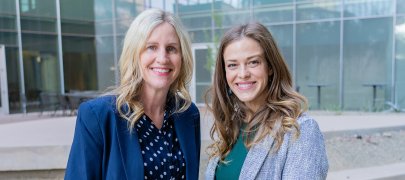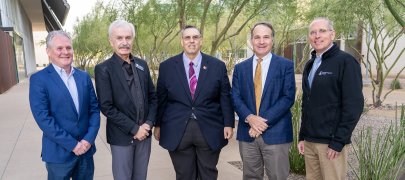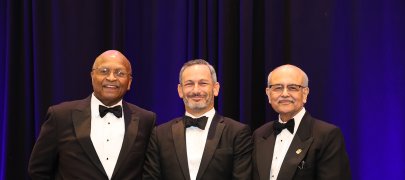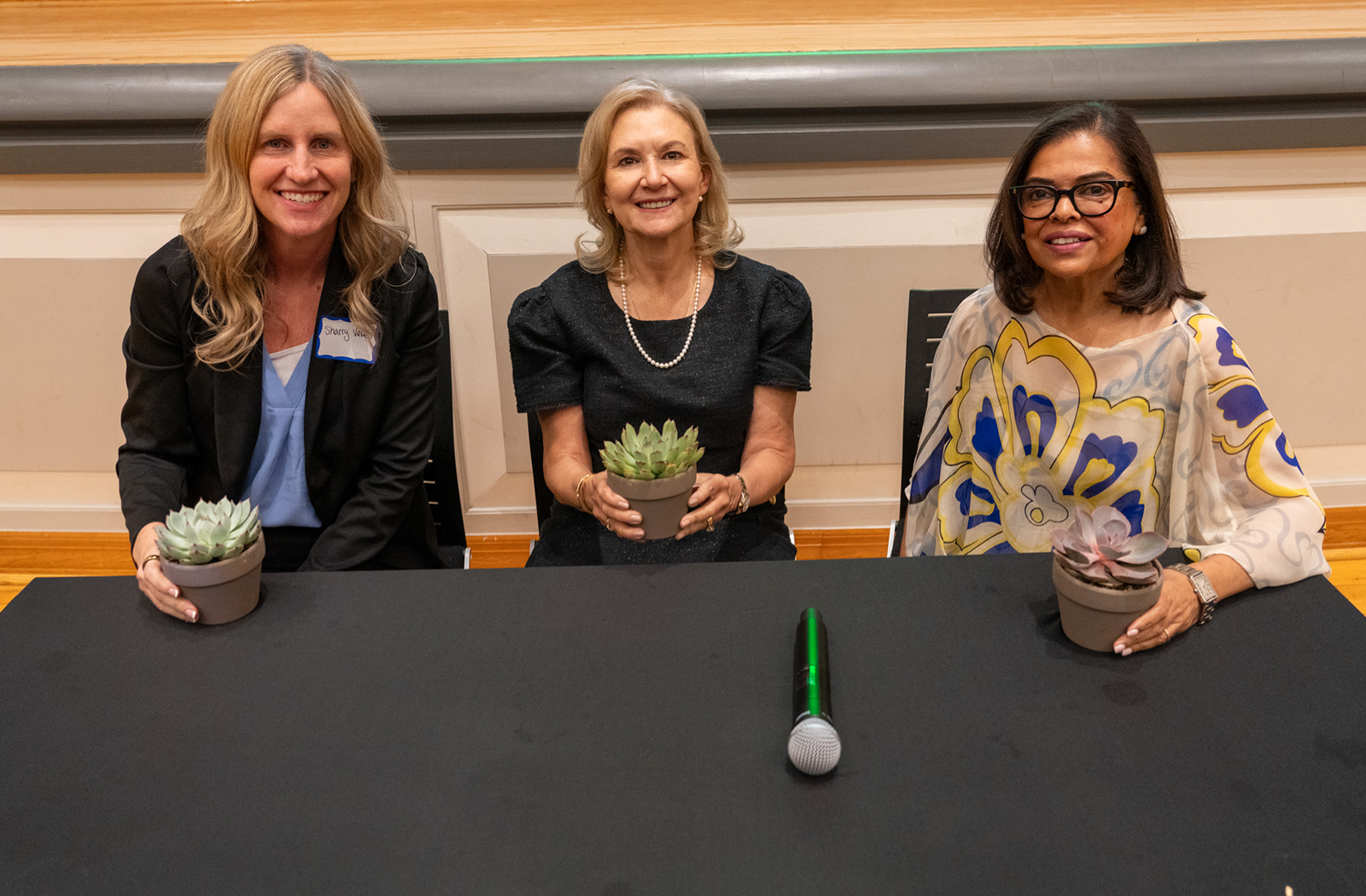
Women in Medicine and Science Spring Dinner Encourages Attendees to Continue Striving for Equity in Medicine

Women are making significant contributions in the fields of medicine and science, yet they are still in the minority — particularly in terms of leadership roles. At the University of Arizona College of Medicine – Phoenix, the Women in Medicine and Science (WIMS) group has worked to shrink the gap.
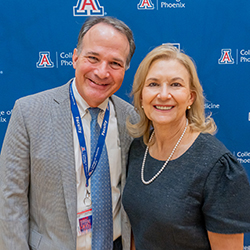
May 23, they continued that mission, hosting their 7th annual Spring Dinner.
Organized by the group’s executive and events and planning committees, the theme for the event was Expanding Your Circle of Influence. Taben Hale, PhD, director of WIMS and interim chair of the Department of Basic Medical Sciences, opened the evening with a heartfelt story about her grandmother, whose aspirations of becoming a scientist were never fulfilled. When she and her husband were pursuing their master’s degrees, she became pregnant, and her dream of a career in medical research ended.
“I know that I am living her dream, and all of you in this room are living her dream,” she said. “I also think of my grandmother on the hard days — especially when we have caregiving responsibilities, taking care of children, parents — but we need to push through; we need to persist; and we need continue our work for all of those who came before us who didn't have these opportunities.”
To deliver the keynote address, WIMS welcomed Sally Radovick, MD, a professor of pediatrics and director of the developing Clinical and Translational Research Institute at the U of A Health Sciences. Dr. Radovick joined U of A in 2023 along with her husband Fred E. Wondisford, MD, MS, MBA, dean of the College of Medicine – Phoenix.
Prior to joining the university, she led a distinguished career in the health sciences — including her most recent roles at Rutgers Robert Wood Johnson Medical School, where she was the senior associate dean for Clinical and Translational Research, and professor and chair of the Department of Pediatrics. In her remarks, Dr. Radovick shared insights on navigating a career in academic medicine and how mentorship helped guide her own journey.
“How did I make career decisions? The theme here is really mentorship,” she said. “Mentors were critically important in each step of my career development and my decisions about what to do next.” Their support proved invaluable as Dr. Radovick cultivated her research and clinical interests.
One mentor, Margaret MacGillivray, MD, former chair and professor of pediatrics at the University of Buffalo who passed away in 2017, shared guidance with Dr. Radovick early on that has stuck with her throughout her career. Dr. MacGillivray advised her, “Don’t look backward to the difficulties we endure as a woman. Rather, always look forward.”
Dr. Radovick met Dr. MacGillivray when she was the president of the Pediatric Endocrine Society, and they quickly formed a strong bond. One of the first female pediatric endocrinologists, Dr. MacGillivray’s story was one of great inspiration.
Dr. Radovick further stressed the importance of diversification in one’s research interests and goals, the benefits of partnering with peers to enhance professional development and her keys to academic success — grit, passion, resilience and perseverance.
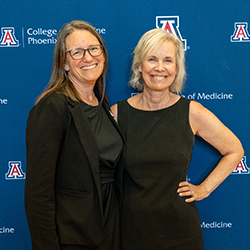
“Grit: You’re going to get knocked around; you’re going to fall off the horse. Get back on. Passion: When I interview someone for a position, I always will inquire, ‘Are they excited about what they are going to do?’ Because those are always the most successful people,” she said.
“Resilience: You’re going to have to put up with a lot to get through in life. And perseverance: I think we’ve come a long way as women, as you can see here, and I’m very proud to be a part of it,” Dr. Radovick continued.
The evening concluded with a panel featuring Dr. Radovick, Ranita Sharma, MD, executive vice dean of the college, and Sharry Veres, MD, chair of the college’s Department of Family, Community and Preventive Medicine. They fielded questions from Dr. Hale, who moderated, as well as the audience, sharing their perspectives and advice on making difficult career choices, the value of connecting with patients and more.
WIMS has championed the careers of female faculty, researchers and students since their inception in 2017.
About the College
Founded in 2007, the University of Arizona College of Medicine – Phoenix inspires and trains exemplary physicians, scientists and leaders to optimize health and health care in Arizona and beyond. By cultivating collaborative research locally and globally, the college accelerates discovery in a number of critical areas — including cancer, stroke, traumatic brain injury and cardiovascular disease. Championed as a student-centric campus, the college has graduated more than 900 physicians, all of whom received exceptional training from nine clinical partners and more than 2,700 diverse faculty members. As the anchor to the Phoenix Bioscience Core, which is projected to have an economic impact of $3.1 billion by 2025, the college prides itself on engaging with the community, fostering education, inclusion, access and advocacy.
